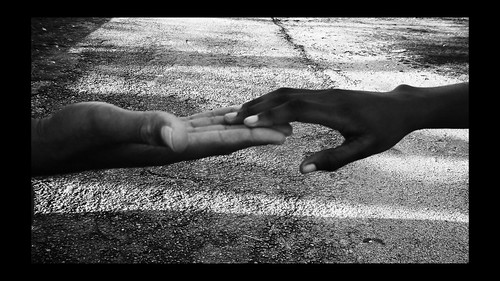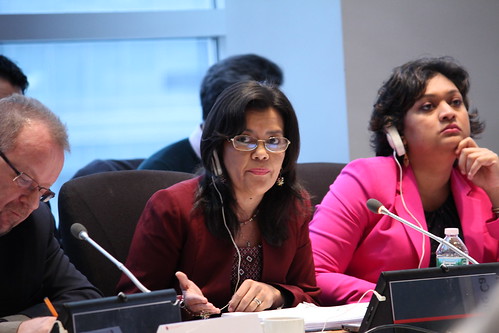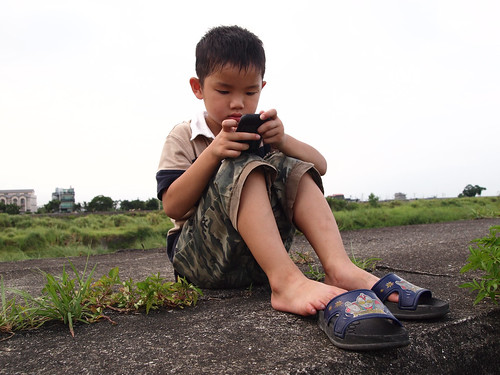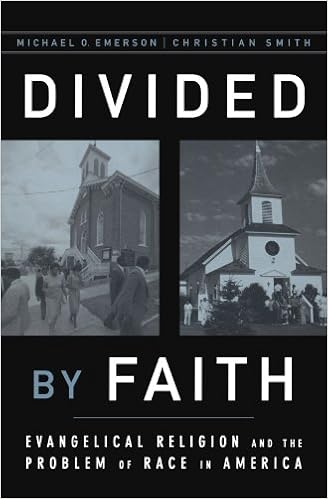It was several years ago and I was sitting down to dinner with a number of pastors from another part of the world. I was speaking at a conference and these men were guests of the conference host.
A mutual friend introduced me to them and shared that I had worked for many years with The Impact Movement, a ministry focused on African American college students.
After settling into our meal and getting acquainted with one another, one of the men asked me, "Can I ask you a question? Why do Black people like fried chicken so much?"
Inwardly appalled by his inquiry, I composed myself and responded, "What makes you think that?"
He went onto share that although he didn't know any Black Americans personally, he inferred from watching American television programs and movies that this was true. He simply wanted to know why and thought I might be able to help him. Knowing that English was not this brother's first language, I took the time to clarify his question and to make sure that I comprehended him as best as I could.
Confident that what I heard was what he had asked, I posed a question, as well as a follow-up to him:
I asked, "Have you ever had fried chicken?"
He said, "Of course! Many times."
I then asked, "Do you like it?"
He responded, "Of course!"
I said, "I do too. So I guess there are lot of people that probably like fried chicken, including the both of us."
I then went on to explain that unfair stereotypes -- ways of categorizes groups of people without viewing them as individuals -- had been woven into our country's history, especially as it pertained to African Americans. In order for those in power -- yes, even some Christian pastors -- to justify the dehumanization of those of African descent, negative stereotypes of Black people had developed over time. Sadly, many of these stereotypes persist to this day.
I could have assumed there was racist intent behind the man's question but I don't think that would have been fair...nor helpful. He had little context for American history and admittedly knew no African Americans personally. His question came from a place of unawareness and not ill-intent. He had been exposed to a stereotype about Black Americans that wasn't being applied to other ethnic groups and he simply wanted to know if it was true. I attempted to address his question in the most gracious and helpful way I could.
In the case of African Americans and fried chicken, the curious might wonder how this specific stereotype might have come about.
Gene Demby with NPR provides some history:
"What is it with this stereotype about black people loving fried chicken?
I asked Claire Schmidt for help. She's a professor at the University of Missouri who studies race and folklore. Schmidt said chickens had long been a part of Southern diets, but they had particular utility for slaves. They were cheap, easy to feed and a good source of meat. But then, Schmidt says, came Birth of a Nation.
D.W. Griffith's seminal and supremely racist 1915 silent movie about the supposedly heroic founding of the Ku Klux Klan was a huge sensation when it debuted. One scene features a group of actors portraying shiftless black elected officials acting rowdy and crudely in a legislative hall. (The message to the audience: These are the dangers of letting blacks vote.) Some of the legislators are shown drinking. Others had their feet kicked up on their desks. And one of them was very ostentatiously eating fried chicken. "That image really solidified the way white people thought of black people and fried chicken," Schmidt said.
Schmidt said that like watermelon, that other food that's been a mainstay in racist depictions of blacks, chicken was also a good vehicle for racism because of the way people eat it. (According to government stats, blacks are underrepresented among watermelon consumers.) "It's a food you eat with your hands, and therefore it's dirty," Schmidt said. "Table manners are a way of determining who is worthy of respect or not."
But why does this idea still hold traction, since fried chicken is clearly a staple of the American diet? Surely, KFC, Popeyes and Church's ain't national chains — and chicken and waffles aren't a brunch staple — because of the supposed culinary obsessions of black folks. "It's still a way to express racial [contempt] without getting into serious trouble," Schmidt said. (Among the Code Switch team, we've started referring to these types of winking statements as "racist bank shots.")
"How it's possible to be both a taboo and a corporate mainstream thing just shows how complicated race in America is," Schmidt said."
In discussing the topic of stereotypes, it may be helpful to explore
the origin of the word. It seems that the term originated as a result of the printing press. When books were being printed, it was a laborious process for the printer to have to set the type to new molds for each book being printed. With limited supplies available, it meant that other books couldn't be printed while those on the press were being created. When books that were popular had to be printed over and over, it felt even more time consuming to have to do the same process with each printing.
Eventually, it was discovered that a printer could create a mold of already set type and cast large metal plates so that the book could be quickly printed again at a future date. Once the "stereotype" plates were created, the set type could be taken apart and used for other projects. This made the job much easier for the printer. They didn't have to think about searching for the right letters and carefully placing them in the right order to print the book. They could just slap the plate down and,
Voila!, an exact reproduction of the book could be created.
In the world of printing books, it was discovered that stereotyping can be a wonderful way to ensure consistency in product while saving significant time and money.
But, when it comes to people, stereotypes can be destructive.
Stereotypes can strip people of their humanity and leave them with nothing more than a label placed upon them that is not of their choosing. Even if a common belief about a certain group of people might be generally true (e.g. Canadians like hockey), we must resist the temptation to treat people as weird if they do not meet the expectations that we have presumed upon them.
When we assume we know everything about a person because of how they look or where they are from, it prevents us from learning who they are as individuals. Each human being is a expression of the handiwork of God and they deserve much more than a stereotype to define them.
The Bible tells us that
God created us uniquely and that He even knows
the number of hairs on our head. In light of this, doesn't it make sense that we would seek to know our fellow image bearers of God as individuals and not simply categorize them based on lazy stereotypes?
Let us do the hard work of "resetting the machine" for each person God gives us the privilege of encountering. It takes great time and effort but, in the end, we will discover that viewing each person as an individual is better than settling for a stereotyped copy.
(h/t to my friend
Rasool Berry for his assistance in writing this post and to
Mental Floss on the origin of the term stereotype.)


























